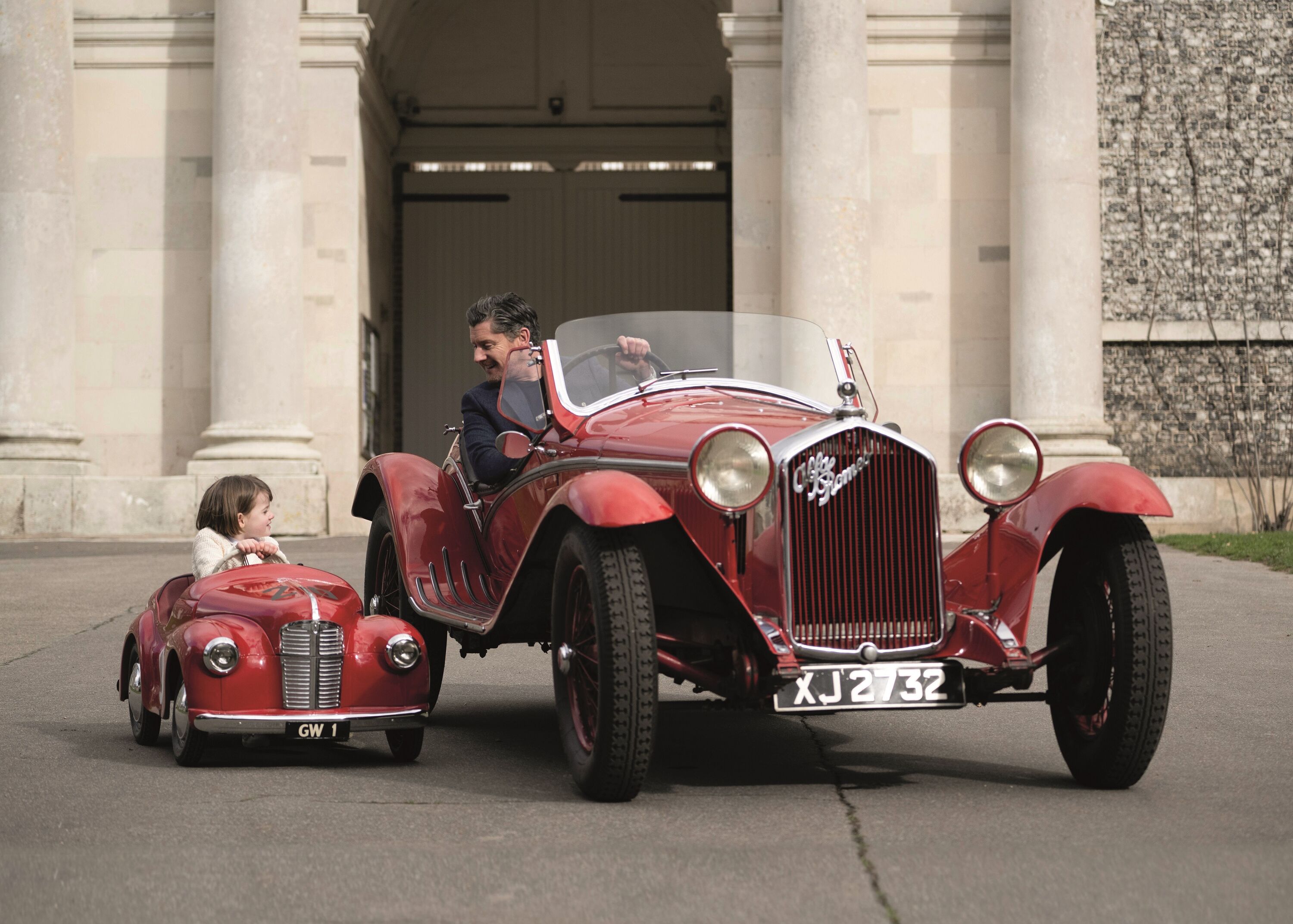The 11 most beautiful cars of all time
Beauty is a thorny subject in general, let alone when discussed in the context of cars. On the one hand, it’s almost entirely subjective. Taste is infinitely variable. On the other, as certain car designers have told us over the years, there’s a science to beauty and there are cars that garner an almost unanimous veneration. That being said, we’d like to add that true beauty requires a certain originality, a freshness. Some cars may be famous for their beauty but it may be what came before, that sowed the seeds, that deserves the credit. Commensurately, there’s beauty in tasteful evocation, in the reinterpretation of traditional style for a modern era. There’s beauty in function, too, we’d argue. There’s beauty in configuration, in architecture. Cars are a latticework of static and animated shapes, all mingling with each other. How they go about that can inform beauty, we reckon. Enough waffle, let’s get into it.

Jaguar E-type
We’ll get the obvious ones out of the way first. The Jaguar E-type is for most, beauty incarnate when it comes to cars. Even Enzo Ferrari called it the most beautiful car in the world when he saw it. It effectively set the mould of what a sexy sportscar should be aiming for. Muscular yet elegant, curved yet aggressive. The E-type can be likened to a pebble, eroded for thousands of years by the freshest, freest-flowing water. It really does appear a force of natural beauty. Overdone as it is, there’s no ignoring the E-type as a pillar in automotive aesthetics.

Aston Martin DB7
You could take your pick from the Aston catalogue from those golden years between 1993 and 2013, of the era dominated by the all-important golden ratio. We’ll place our flag in the sand where it all started, with the DB7. Ian Callum’s forward-looking super GT got its looks mostly before it got its badge. A project that Aston inherited, by its release, it couldn’t have been anything else. As the covers came off in 1993, the silhouette of most Aston Martins, themselves considered some of the most beautiful cars on the road, was defined for the next two decades.

Ferrari 312P Berlinetta
Ferrari’s back catalogue is for want of a less incongruous expression, riddled with beauty. It’s all hand-beaten alloy, swept-back shapes and any other hyperbolic clichés that come about when discussing Italian design and craftsmanship. While the given opinion is that Ferrari along with Aston Martin and Jaguar were the famed masters of the classically beautiful sports GT, we want to celebrate its knack for prototype racers, going mid-engined from the stunning 250LM. Otherwise known, these are the cars whose incredible dimensions and silhouettes are echoed in the most expensive and exclusive high-performance supercars and hypercars of the last 20 years. The best of the lot, we reckon, is the 312P Berlinetta, a Group 6 machine that wasn’t particularly successful and isn’t particularly widely known. But it’s low, wide, long and sleek, in the most exaggerated way of any of the cars of this period. Beauty in the name of speed is beauty at its sweetest.

Bugatti Type 57SC Atlantic
The commonly used expression is “beauty is in the eye of the beholder”, but in the case of the Type 57SC Atlantique its place as one of the most beautiful cars of all time is ratified by its creator, Jean Bugatti. It’s said that he considered the Atlantic to be his most innovative and valuable creation. There’s a sheen of beauty that comes with mystery and romance, which of course, the second Atlantic made comes with in spades, given its been lost to history by and large since 1941 and its evacuation from what was to become Nazi-occupied France. If found, it’ll be the most valuable car in the world, with estimates over £100 million. The Type 57SC was Bugatti at its fastest and most advanced in the late 1930s and indeed, is the most celebrated and venerated in the marque’s history today.

Alfa Romeo 8C Competizione
A car’s quest for beauty isn’t necessarily betrayed by its lack of historical significance. The 8C Competizione today is indeed Alfa Romeo’s forgotten supercar, built at the time to celebrate the marque’s storied racers of the 1950s and 1960s, including the Targa Florio-winning 6C 2500 Competizione. The 8C used a Ferrari-built Maserati engine and was manufactured by Maserati – hardly shot-through with Alfa Romeo pedigree. The body though. Thought by some to be the closest thing to modern automotive art, the 8C’s curvaceous form was penned by Wolfgang Egger at Centro Stille Alfa Romeo. It was beholden to no existing models, no immediate lineage. It was simply the prettiest front-engined two-seater car Egger could imagine as an evocation of those historic racers. To us, it’s one of the all-time prettiest cars ever made.

Lamborghini Miura
There wasn’t anything quite like it on the road at the time. Indeed, little to none can claim to have matched it since. The Lamborghini Miura was the original mid-engined supercar. Innovative at the time, it place its V12 transversely behind the driver. What was crafted around that basic architecture is we think an example of pure motoring beauty and distilled flamboyance, without verging into ostentatiousness. The Miura was an original. Really, no other mid-engined road car had come before it. Yes, an argument can be made for the Countach LP500 that followed, though that design suffered necessarily technical perversions to make the cars reliable prior to production. The Miura on the other hand retained its design purity of vision.

Ferrari 250 SWB/C
There’s not much explanation required with the 250 SWB/C. Like the Miura, like the 8C, you need only look at it to know why it’s on this list of the most beautiful cars ever made. That’s how beauty should work, isn’t it? There’s beauty beyond the aesthetic with the SWB/C, though. It’s also one of the liveliest iterations of the Colombo V12, which is a thing of beauty in itself.

Aston Martin DB2/4 MkIII
“But what about the DB5?” you may be crying. It might be a controversial take but we reckon the DB5 was the beginning of the end of the truly beautiful line of ‘50s and ‘60s Aston sportscars. We think it began, with the DB2/4 MkIII. Curvaceous, with those recognisable Aston cues starting to appear. The DB5 is actually where for a short period through the DB6, these cars became little more than sporty looking saloon coupes. The DB2/4 MkIII is the classic Aston aesthetic in its original and most honest form. It’s even Batman’s choice of classic Aston.

Jaguar C-X75
From the classics, to a white elephant prototype. The C-X75 is more than that though. It’s a symbol of sensible winning out over sexy. Because for Jaguar’s current range of saloons and SUVs to exist, what could well have been the most beautiful hypercar of the 21st century, or indeed ever, had to die. Calling upon much of the most extreme end of Jag’s back catalogue – the XJ13, the XJ220, the XJR15, the sleek, svelte C-X75 was Ian Callum at the height of his design power. We wouldn’t be surprised if that car not making it to production is one of his greatest professional regrets. It still gets a spot here, though, given a number of essentially production-representative cars were built.

Venturi Atlantique
The 1990s had big potential to produce some of the prettiest cars ever, as curves returned with a modern twist following the edgy ‘70s and ‘80s. That potential was only delivered in a selection of cars, many from Ferrari. We think it was realised best, however, in a French supercar, called the Venturi Atlantique. The curvy surfacing and subtle vents blended seamlessly with 1980s buttresses and residual pop-up headlights. If you’re wondering why the Ferrari 355 doesn’t get this spot, well, simply, the Venturi did it first.

Aston Martin Valkyrie
Okay, bear with us for this one. No, the Aston Martin Valkyrie not classically beautiful like an E-type or a 250 SWB/C. Not even like the C-X75. But beauty is preserved in this car, in spite of an absolute uncompromising purpose to a level not seen before. It was the insistence of Adrian Newey that the car’s elegant lines not be perverted by jutting spoilers and canards. Instead, the Valkyrie apes the finest sports prototypes in its silhouette while harnessing the air running under and through its bodywork. It’s as if the whole car is a sophisticated 3D print, with apertures and gaping chasms littered throughout. It’s a marvel of packaging and air management that’s generations ahead of anything we’ve yet seen and in addition to the beauty of purpose, it’s also entirely original and we reckon there’s some innate beauty in there too.
There we have it, then. Our picks of the most beautiful cars of all time. There will no doubt be some resistance, some curiosity about cars we’ve included and cars we’ve not. Let’s hear them.
312P Berlinetta image courtesy of Motorsport Images, 250 SWB/C image by Jordan Butters, DB2/4 III image by RM Sotheby’s, Valkyrie image by Tom Shaxson.
List
Jaguar
E-type
Aston Martin
DB7
Ferrari
312P
Bugatti
Type 57
Alfa Romeo
8C
Lamborghini
Miura
250 SWB
DB2/4
C-X75
Valkyrie































































